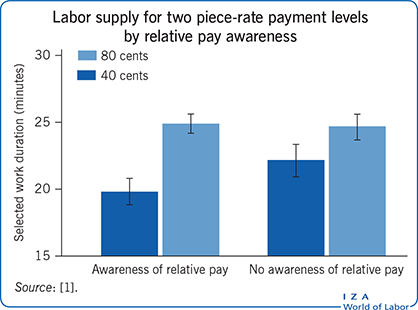Elevator pitch
Recent studies show that even irrelevant relative pay information—earnings compared to the past or to others—significantly affects workers’ willingness to work (labor supply) and effort. This effect stems mainly from those whose pay compares unfavorably; accordingly, earning less compared to others or less than in the past significantly reduces one’s willingness to work and effort exerted on the job. Comparing favorably, however, has mixed effects—with usually no effect on effort, but positive or no effects on labor supply. Understanding when relative pay increases labor supply and effort can thus help firms devise optimal payment structures.
Key findings
Pros
Knowledge about relative pay that bears no new information should, theoretically, not affect labor supply and on-the-job effort; but in fact it does.
Recent studies indicate that the effect of relative pay is almost exclusively negative and stems from those who reduce their labor supply and on-the-job efforts in response to being compared unfavorably.
The effect of relative pay is conditional on workers being aware of wage differentials; when an acceptable reason for differential pay is provided, no adverse consequences are found.
Cons
While some studies show that receiving favorable relative pay can increase labor supply, the results are not found consistently, and thus no general positive effects can be inferred.
Although convincing, recent results on relative pay are shown in just a few limited settings.
Much of the research has been conducted in a controlled environment where the relevant reference pay is straightforward; in real life, however, the relevant reference pay is often complex and the findings are therefore difficult to generalize.
